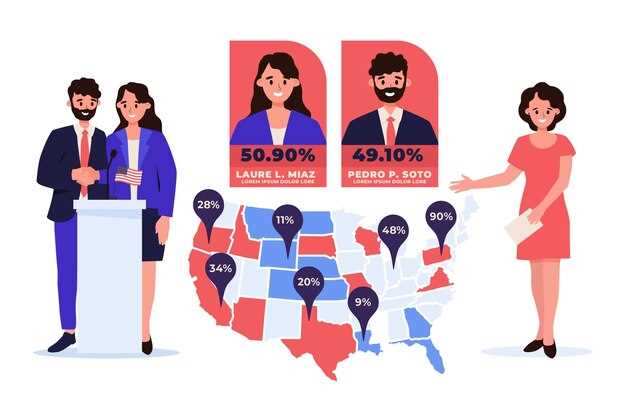
When it comes to vehicle registration and licensing, each state in the United States has its own set of rules and regulations regarding license plates. These state-specific plate laws dictate various aspects, from the type of plates issued to the requirements for display and modifications. Understanding these laws is essential for vehicle owners to ensure compliance and avoid potential fines.
Each state’s plate law can vary significantly, reflecting unique local priorities and legal requirements. For instance, some states mandate the display of two plates–one on the front and one on the rear of the vehicle–while others only require a single rear plate. Moreover, special collections and vanity plates often come with additional stipulations that must be adhered to. This patchwork of regulations can extend to materials used for plates, acceptable characters on custom plates, and even restrictions around political or religious messages.
In this article, we will explore the intricacies of state-specific plate laws across the United States. By examining the differences in requirements and regulations, vehicle owners can better navigate the complexities of vehicle registration and ensure that their vehicles meet all legal obligations. Whether you’re planning to move to a new state or simply want to learn more about your current state’s laws, this guide will provide valuable insights to keep you informed and compliant.
Examining Unique Registration Requirements by State

Registration requirements for vehicles in the United States vary significantly from state to state. This diversity reflects local laws, taxation policies, and public safety considerations. Understanding these unique stipulations is crucial for vehicle owners to ensure compliance and avoid penalties.
In California, for example, vehicle owners must pay a Vehicle License Fee (VLF) that is calculated based on the car’s value. Additionally, emissions standards are stringent, necessitating smog checks for most vehicles every two years. Conversely, in Vermont, there is no state sales tax on vehicle purchases, but new residents must register their vehicles within 60 days, which includes providing proof of identity and residency.
Texas takes a different approach, requiring an annual inspection sticker before a vehicle can be registered. This inspection assesses safety and emissions compliance. Additionally, Texas residents must present proof of insurance and a title when registering their vehicle, making it essential for new car owners to prepare these documents in advance.
In contrast, states like Florida have more lenient regulations. While they do require an initial registration and subsequent renewals, there is no mandatory vehicle inspection. However, vehicle owners must show proof of insurance and have their Vehicle Identification Number (VIN) verified for first-time registrations.
Each state also offers various exemptions and considerations. For example, some states provide reduced registration fees for electric vehicles to encourage green initiatives. Others may offer temporary registration for vehicles used only seasonally, such as motorcycles or RVs.
Understanding these state-specific registration requirements not only facilitates smoother vehicle ownership but also contributes to compliance with local laws. Ignoring these regulations can lead to fines, added insurance costs, and even complications during vehicle sales or transfers.
Key Differences in Specialty Plate Eligibility and Design

Specialty plates in the United States vary significantly across states in terms of eligibility requirements and design options. One of the primary differences lies in the criteria for obtaining these plates. For example, some states may require a specific affiliation, such as military service or membership in certain organizations, to qualify for a specialty plate. Others might allow general public participation, provided they pay additional fees to support designated causes or charities.
The design of specialty plates also reflects regional diversity. Each state has its own set of graphics, symbols, and slogans that resonate with local culture and heritage. For instance, California’s plates might feature iconic designs like the Golden Gate Bridge, whereas Florida may showcase the state’s distinct wildlife and natural features. This personalization allows states to promote tourism and foster state pride.
Another difference is in the availability of custom designs. Some states permit drivers to personalize their specialty plates with unique combinations of letters and numbers, while others have a fixed set of designs that cannot be altered. Additionally, the fee structure associated with obtaining these plates can vary widely; some states charge a one-time fee, while others impose annual renewal costs, which may differ based on the type of specialty plate selected.
States also differ in the number of specialty plate options available. Some states, like Texas, offer hundreds of specialty plates representing various interests, from sports teams to environmental initiatives, while others have a more limited selection. The process of requesting and issuing these plates may also have varying timelines and administrative requirements, affecting how quickly drivers can obtain their desired specialty plates.
In summary, the key differences in specialty plate eligibility and design reflect a blend of local laws, cultural significance, and state engagement. These variations contribute to the unique experience of vehicle registration in each state, allowing residents to express their individuality and support local initiatives through their choice of specialty plates.
Navigating Legal Penalties for Non-Compliance with Plate Regulations
Understanding the legal penalties for non-compliance with vehicle plate regulations is crucial for all vehicle owners in the United States. Each state has its own specific laws governing the display, validity, and requirements of license plates. Failing to adhere to these regulations can lead to various consequences. Here are some potential penalties:
- Fines: Most states impose fines for violations related to license plates. The amount can vary significantly depending on the nature of the offense, ranging from minor infractions to more serious violations.
- Traffic Tickets: Non-compliance often results in traffic tickets, which can carry additional fees and affect your driving record. Accumulation of tickets may lead to increased insurance premiums.
- Vehicle Impoundment: Some states will impound vehicles if they are found to have improper or illegal license plates. Retrieval can result in substantial costs, including towing fees and storage charges.
- Legal Charges: In cases of fraudulent plates or attempts to evade law enforcement, criminal charges may ensue, which could lead to larger fines or even jail time.
- Loss of Registration: Non-compliance may result in the denial or revocation of your vehicle registration, making it illegal to operate your vehicle until reinstated.
In addition to these penalties, it is essential to be aware of the following aspects:
- State-Specific Regulations: Regulations vary by state, so it is important to familiarize yourself with the specific laws in your area. Some states require front and back plates, while others only demand one.
- Timeframes for Compliance: States often provide a window for compliance before penalties are enforced. Timely registration and plate renewal can prevent fines.
- Documentation Requirements: Ensure you have all necessary documentation, such as proof of identity and vehicle ownership, when applying for or renewing plates.
- Appeals Process: If you believe you have been unfairly penalized, each state offers a process for appealing ticket or fine decisions. Be sure to follow specific guidelines to contest any alleged violations.
Remaining informed of your state’s plate regulations and the associated penalties for non-compliance is essential for all vehicle owners. Regular checks of your license plate status and compliance can help you avoid unnecessary legal issues and financial burdens.
